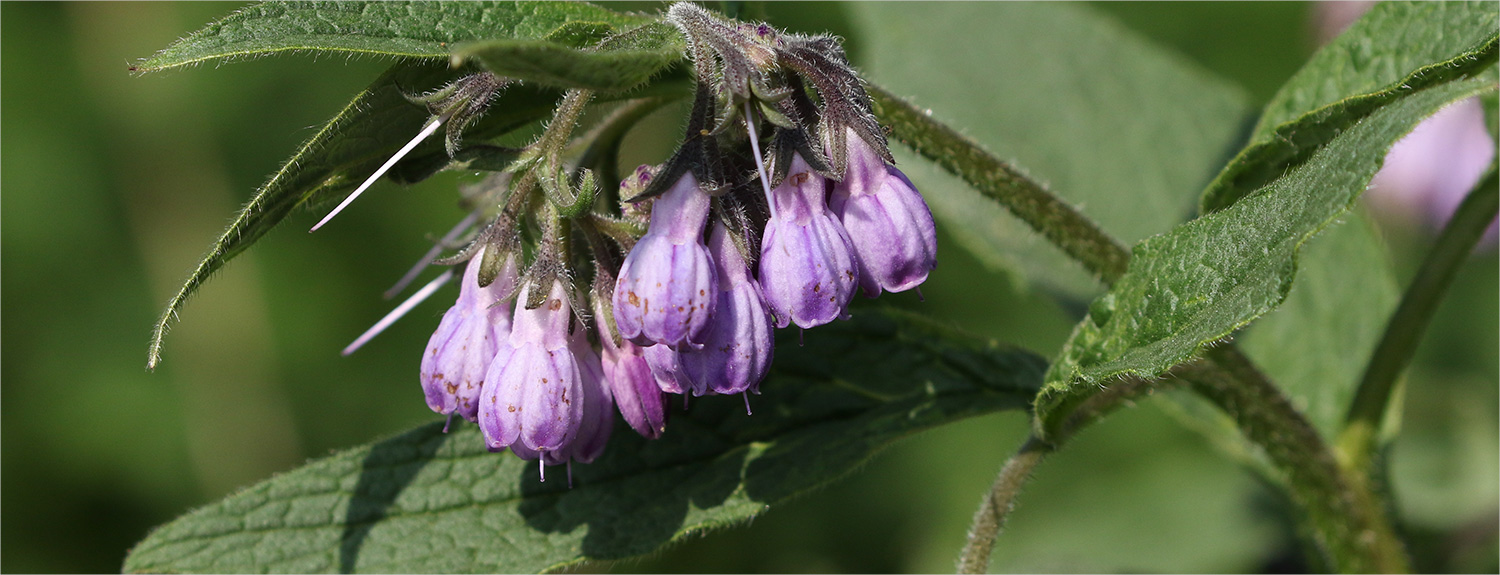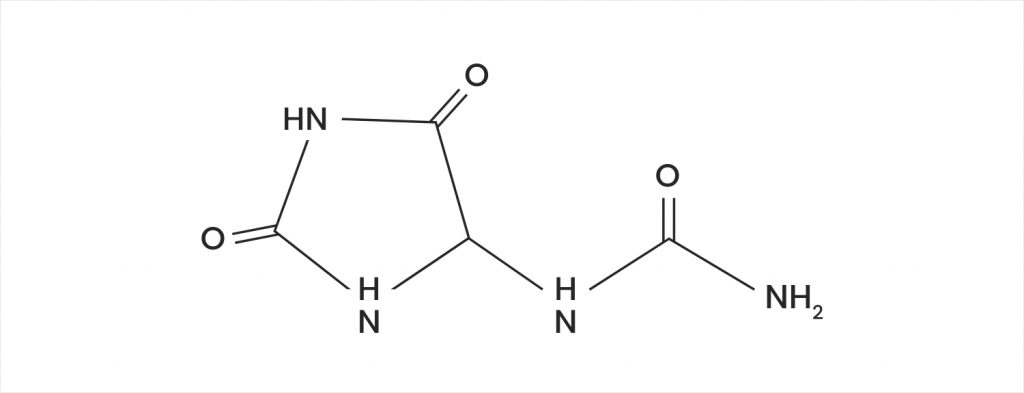
What Is Allantoin?
Allantoin is a skincare ingredient that helps to moisturize and gently remove dead skin cells. Allantoin is an extract from the comfrey plant, which is native to Europe and Asia. Traditionally it has been used in herbal medicine to help reduce irritation and support healing of minor cuts and swelling. While there isn’t an extensive resource of studies performed on this ingredient, the studies that have been performed, support its moisturizing, exfoliating, and its potential healing abilities.

Allantoin can also be sourced from beets, wheat sprouts, chamomile, and tobacco seeds. However, allantoin is generally synthetically produced. Synthetic ingredients often get a bad reputation in the skincare world, particularly in the natural or clean beauty industry. This reputation isn’t really deserved, as synthetic ingredients are often identical to the original molecule and can be better for the environment. Synthetic manufacturing of ingredients can put less strain on environmental resources, sometimes making it a more sustainable way to source ingredients.
Allantoin has several skincare applications and is thought to have moisturizing effects as well as properties that help create smooth, healthy skin. Allantoin is considered to be a relatively safe ingredient, as it has a low instance of side effects. Allantoin comes in powder form and is found in many different products, such as scar treatments, exfoliators, masks, and moisturizers, and is generally safe for all skin types.

Allantoin
the good: Allantoin is a non-irritating skincare ingredient that helps to soothe and protect the skin’s natural barrier. It also may have the added benefits of helping to stimulate tissue repair and growth.
the not so good: Be mindful not to use allantoin with other exfoliators as this can cause over-exfoliation and irritation.
Who is it for? All skin types except those that have an identified allergy to it. Specifically, it is ideal for dry or irritated skin types.
Synergetic ingredients: Works well with most ingredients.
Keep an eye on: Is often used with silicone and other emollients in scar reducing formulations.
How Does Allantoin Help To Improve The Appearance Of Your Skin?
Allantoin has several potential benefits to the appearance of the skin.
Moisturizes and hydrates
Allantoin works as an emollient to protect the skin from moisture loss to the air. Emollients help to maintain a healthy skin barrier, preventing transepidermal water loss or TEWL. Maintaining a healthy skin barrier protects the skin from allergens and bacteria. Disruption of the skin’s natural barrier has been linked to conditions such as eczema, dermatitis, and psoriasis. Allantoin helps to maintain the water content of the skin and give your skin that dewy, plumped look.
Exfoliates
One of the other benefits of allantoin is its ability to exfoliate the skin gently. Gentle exfoliation helps to reduce flaky, dry skin that prevents getting the most out of other skincare products. Exfoliation also helps to improve the texture and moisture levels of the skin by removing dead skin cells.
Soothes
Allantoin is also a calming ingredient helping to soothe and protect the skin. Its proposed mechanism of action is that it binds to and forms complexes with irritants. This prevents them from having the opportunity to cause sensitization or irritation.
Healing and scars
A few studies, including a study published in the Archives of Dermatological Research, have provided evidence that allantoin may have a role in helping to heal and reduce irritation. A few research studies have looked into allantoin’s ability to improve the appearance of scarring. Allantoin is thought to do this through providing a natural protectant for healing skin and is believed to promote cell regeneration.
This is why allantoin is in many formulations for acne scarring.
Anti-aging
Through its exfoliating action, allantoin helps to remove dead skin cells from the surface layers of the skin. This helps to improve the appearance of texture, increase the smoothness, and reduces dullness. It has been suggested that allantoin may help to stimulate fibroblasts, which are the cells responsible for collagen production.
Sunscreen
Allantoin itself doesn’t block UV rays; however, it’s often included in many sunscreen products to help reduce irritation. Sunscreens are usually products that people are sensitive to, so including allantoin helps to reduce the irritation caused by sunscreen formulations.
Who Should Use Allantoin?
All skin types can benefit from this ingredient, particularly those looking to improve the appearance of texture and dryness. Those with sensitivities may benefit from the use of products that contain allantoin as well. Many different skincare and cosmetic products contain this non-irritating compound, such as concealer, moisturizers, masks, foundation, and lipstick, among others. If your skin is prone to irritation, allantoin may reduce the risk of breakouts and other reactions. Allantoin is less irritating than other compounds, and it may mitigate the effects of other irritating ingredients.
Is Allantoin Safe?
The Cosmetic Ingredient Review Expert Panel, a group that reviews the safety of skincare and cosmetic ingredients, has assessed the available data on allantoin. It determined that allantoin is safe for its indicated uses. It is non-irritating and a gentler anti-aging ingredient than many anti-aging formulations.
Allantoin can be used in a variety of skin types and has the added benefit of calming irritated or sensitized skin. It is possible to be allergic to allantoin as it is possible to be allergic to any skincare or cosmetic ingredient. Sensitive skin types should keep this in mind and avoid formulations that use crushed comfrey leaf as this is the most irritating form of allantoin.
References:
Sidgwick, G, McGeorge, D & Bayat, 2015. ‘A comprehensive evidence-based review on the role of topicals and dressings in the management of skin scarring’, Archives of Dermatological Research, vol. 307, is. 6, pp.461-477.
Shestopalov, A, et al., 2006. ‘Biological function of allantoin’, Biology Bulletin, vol. 33, pp. 437-440
Becker, L, et al., 2010. ‘Final Report of the Safety Assessment of Allantoin and Its Related Complexes’, International Journal of Toxicology.







